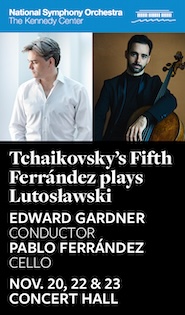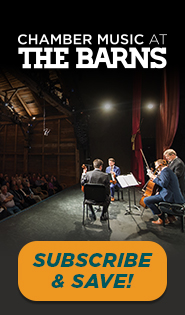Baritone Keenlyside makes a French connection in Washington debut

Simon Keenlyside performed a recital for Vocal Arts DC Friday night at the Kennedy Center.
Simon Keenlyside made a belated Washington debut on Friday night in the Kennedy Center Terrace Theater. Presented by Vocal Arts DC, the English baritone gave a wide-ranging recital with the accomplished pianist Malcolm Martineau, one that was best in the antic, often surrealistic songs of Ravel and Poulenc rather than German lieder by Brahms and Schubert.
Keenlyside is reestablishing a career rocked in recent years by vocal health problems and thyroid surgery. The voice remains smooth and pliant across a wide range, with some raspiness and occasional weakness at the top. The performers rearranged the songs from what was printed in the program, a decision that ended up placing the least successful set, eight Schubert songs, at the outset rather than the conclusion.
Schubert has long been a Keenlyside specialty, music he approaches with dramatic spontaneity. Martineau had to be on his toes to shadow his singer, who often darted ahead or lingered in a mercurial way. The baritone’s distracting array of gestures—checking his jacket button or waving his arms, almost like tics—was most pronounced in these calm, often bleak songs.
Keenlyside brought a velvety legato in “Liebesbotschaft,” over the babbling brook in Martineau’s piano part, while a more rustic sound prevailed in “Alinde,” supported by the folk song-like drone pattern in Martineau’s left hand. Martineau’s range of articulation saved strophic songs like “An den Monde in einer Herbstnacht,” where Keenlyside’s lack of variety in tone color failed to sustain the dramatic thread. Both musicians applied enough force to be heard clearly, never overwhelming the venue’s active acoustic.
The baritone’s talents as raconteur served him better in the challenging Poulenc songs. His voice opened up in volume in Le Travail du Peintre, limning each vignette, about a modern painter, with unpredictable shading. Poulenc’s melodic and harmonic twists, informed by popular song, added coy commentary to the colorful description of the words. While Keenlyside struggled with the perilous high notes in “Juan Gris,” Martineau’s sure hand mastered the daunting accompaniment of “Paul Klee.”
Keenlyside tended to overdo diction in both German and French, grinding R’s in an otherwise effective Brahms set. Both musicians excelled in setting dramatic scenes in this lonely music, restless fluttering in “Nachtigallen schwingen” and waves roaring across the keyboard in “Verzagen.” Two of the composer’s most tender, sad songs, “Über die Heide” and “O kühler Wald,” were musical highlights among the German pieces.
But it was in the French music that Keenlyside most excelled. A creature of the stage, he responded to their often rambling narratives and musical volatility with manic energy. Although in Poulenc’s “Paganini,” his tendency to rush got the better of him, the baritone created miniature scenes for each of the evocative Quatre poèmes de Guillaume Apollinaire, each one a pile of crazed chatter.
Martineau furnished a breathing interval before the final set with a placid rendering of Poulenc’s “Pavane” from the piano arrangement of the Suite française. The melodies of that set came from Renaissance composer Claude Gervaise, in its original chamber instrumentation to be used as incidental music for a play about Queen Marguerite de Valois. The harmonies are all Poulenc, dissonant almost to the point of bitonality in a way that prefigures the style of Messiaen.
Ravel’s Histoires naturelles made the strongest ending possible to this recital. Keenlyside brought out every quirk, musical and poetic, of Jules Renard’s eccentric portraits of animals. Supported by Martineau’s equally colorful playing, he brought these odd pieces vividly to life without going over the top. The exquisite poise of “Le martin-pêcheur,” where a kingfisher lands on the narrator’s fishing pole, was especially memorable.
Never one to back away from serious repertory, even in encores, Keenlyside offered another odd rarity in response to earnest ovations, Schubert’s “L’incanto degli occhi,” followed by crowd-pleasing renditions of Fauré’s “Le Secret” and Schubert’s “Heidenröslein.”
Vocal Arts DC presents soprano Angel Blue and pianist Catherine Miller 7:30 p.m. December 19. vocalartsdc.org; 202-669-1463




Posted Dec 04, 2018 at 6:55 pm by Lynn Trundle
I believe it is impossible to “overdo” diction when it comes to French (and it was always emphasized in every Jose Van Dam master class I ever attended), I definitely disagree that Keenlyside overdid it. After hearing many a recital where you could barely tell the singer was singing in that language, it was a pleasure to be able to hear each word and to hear those words sung with a real French accent.